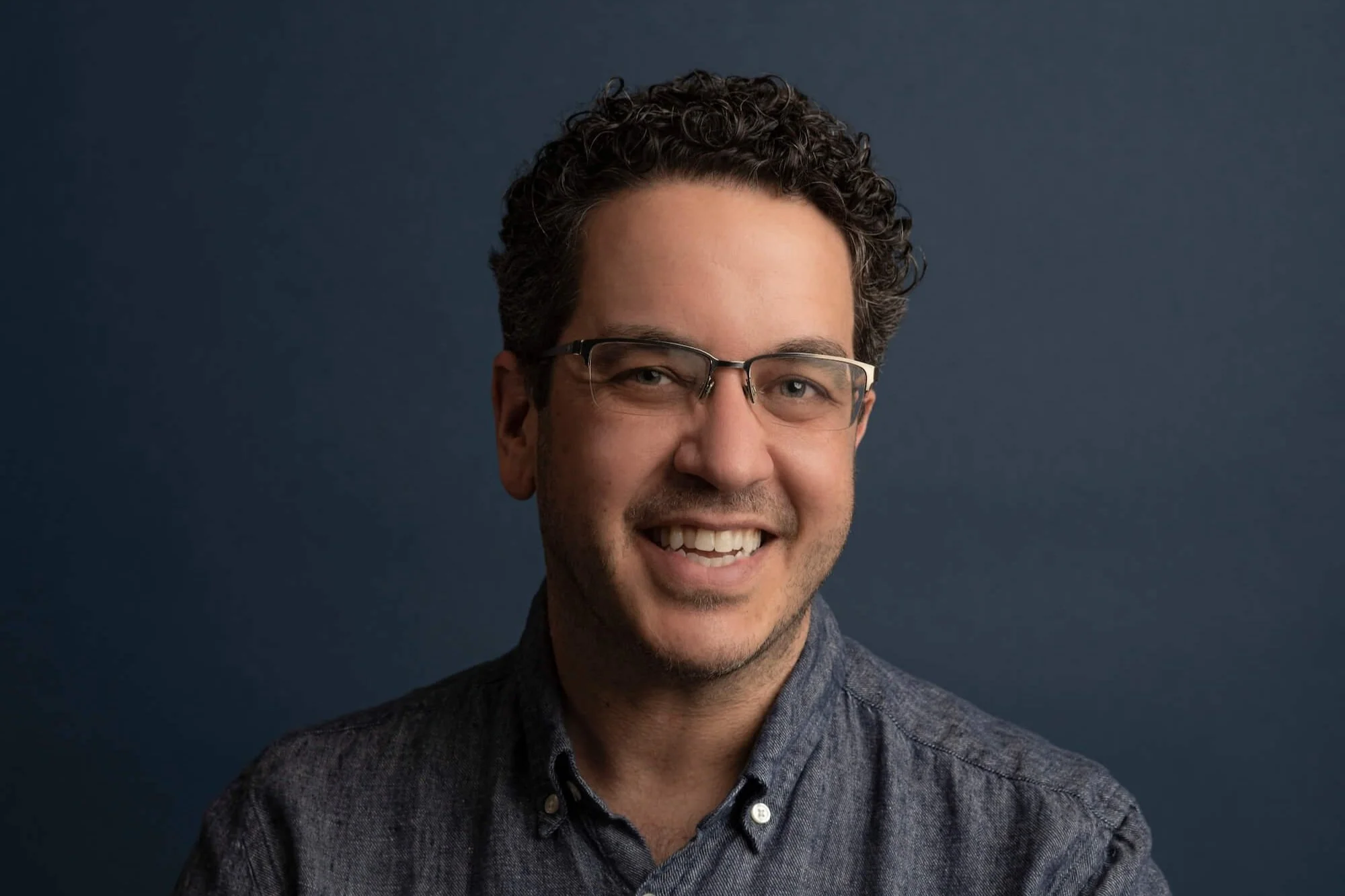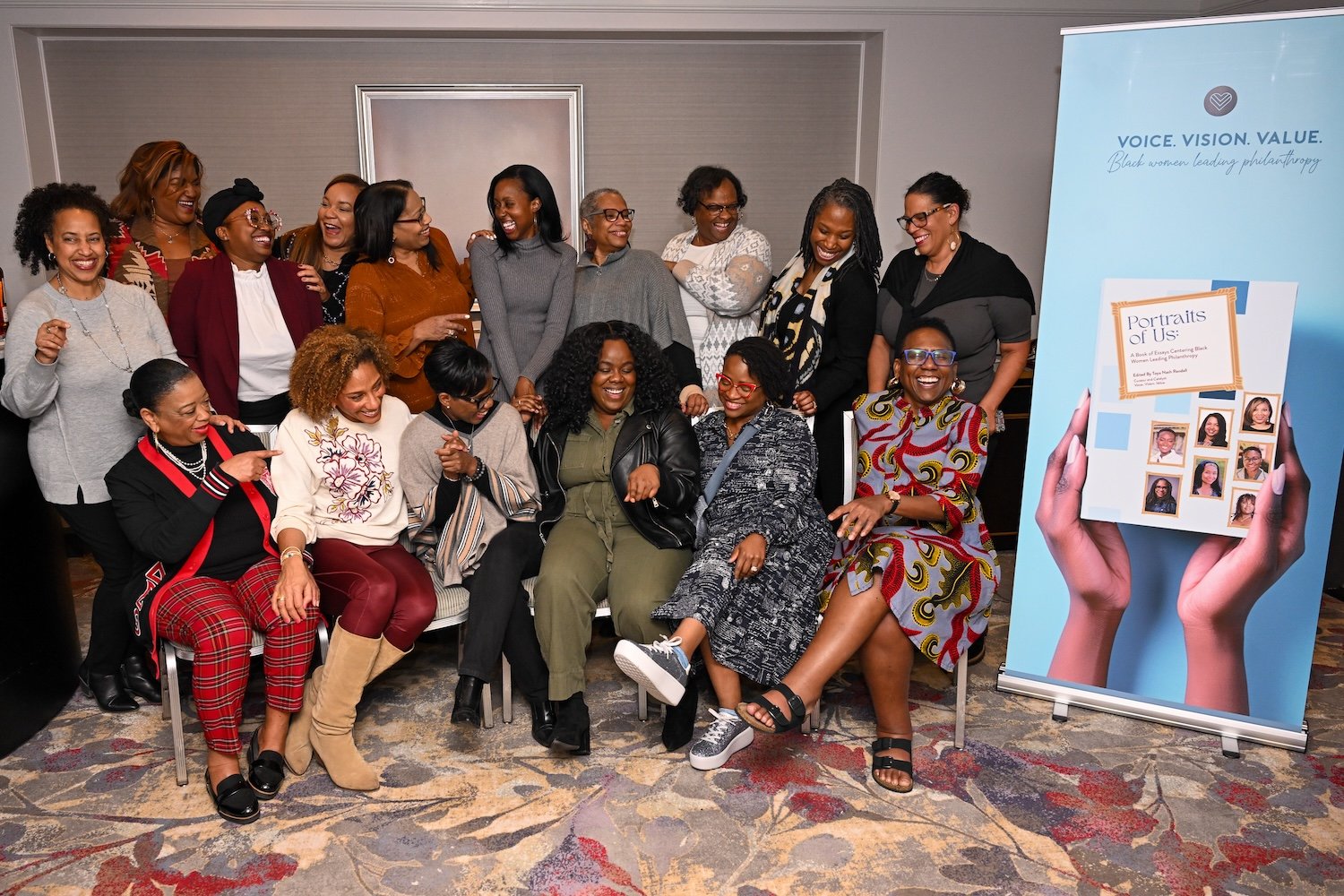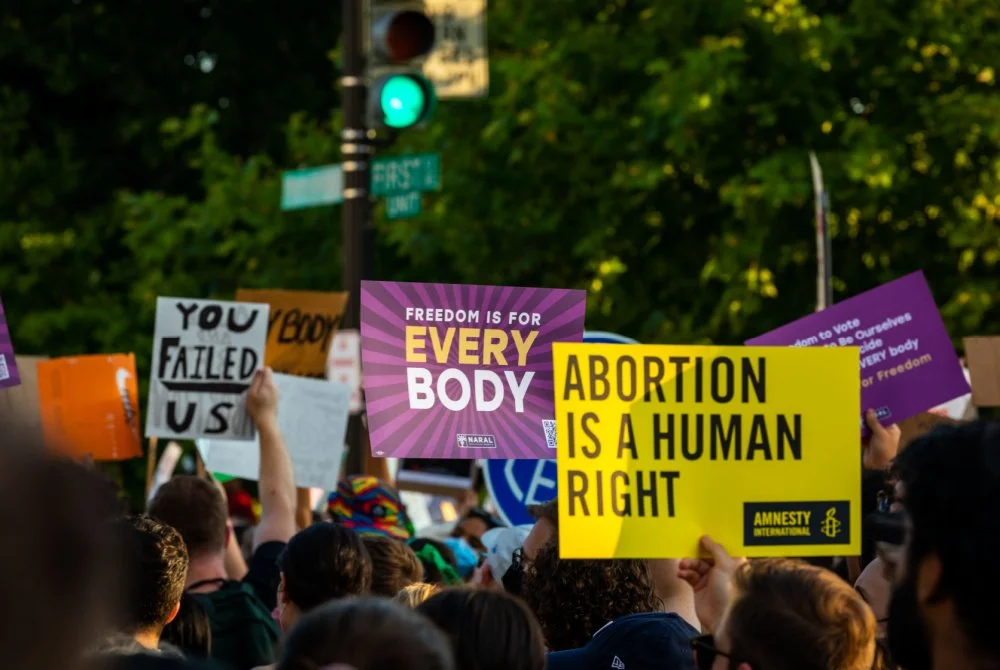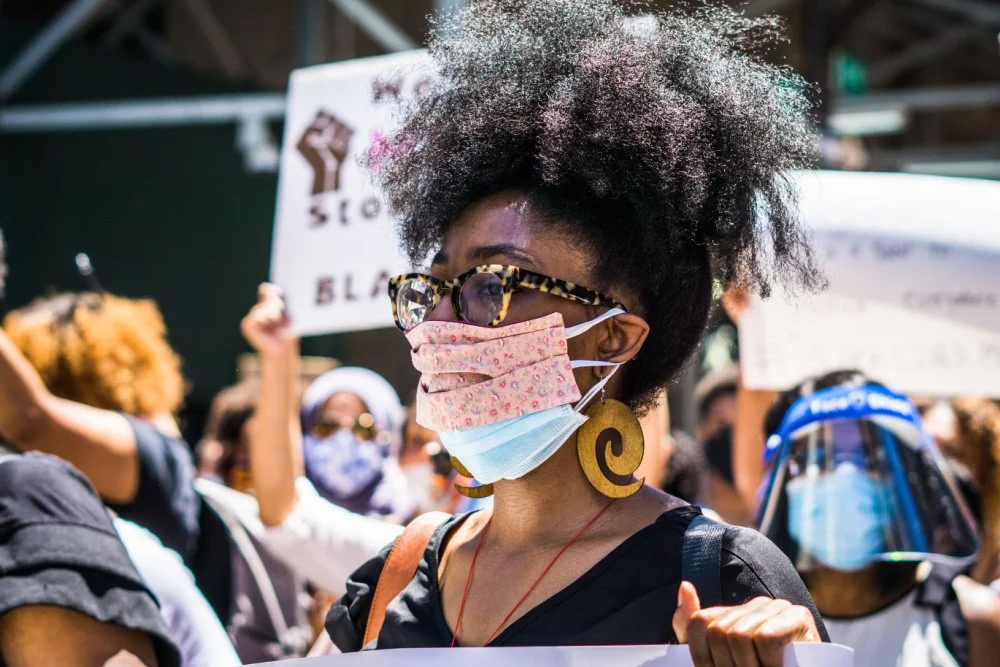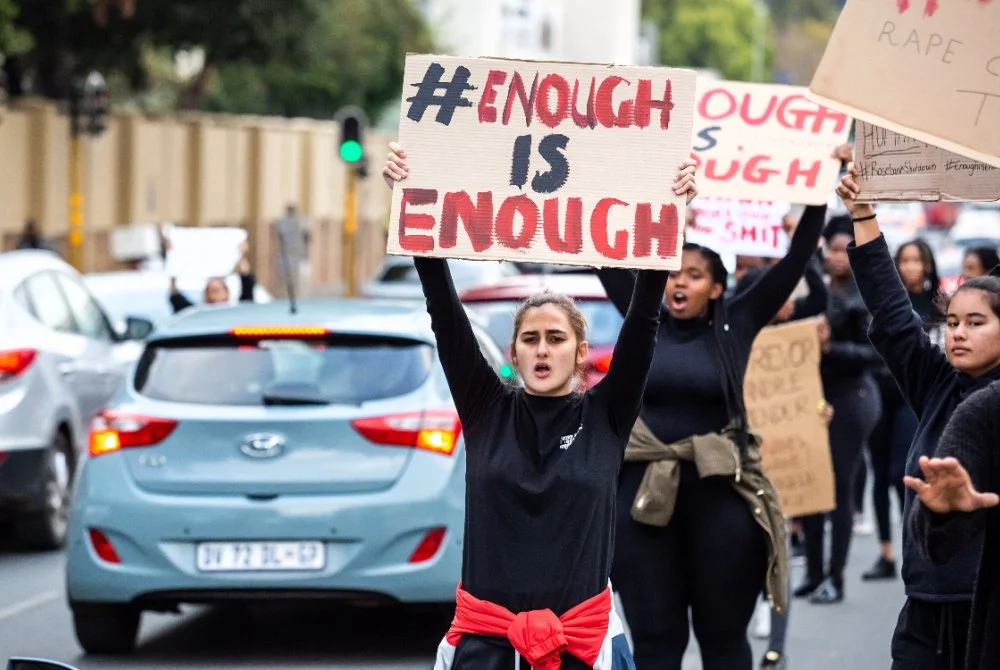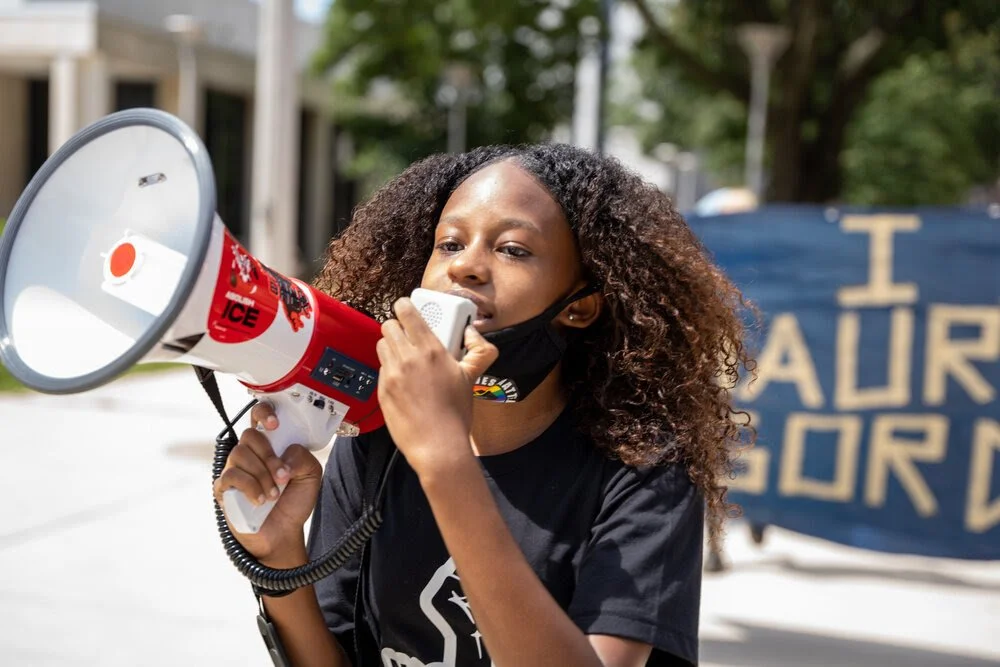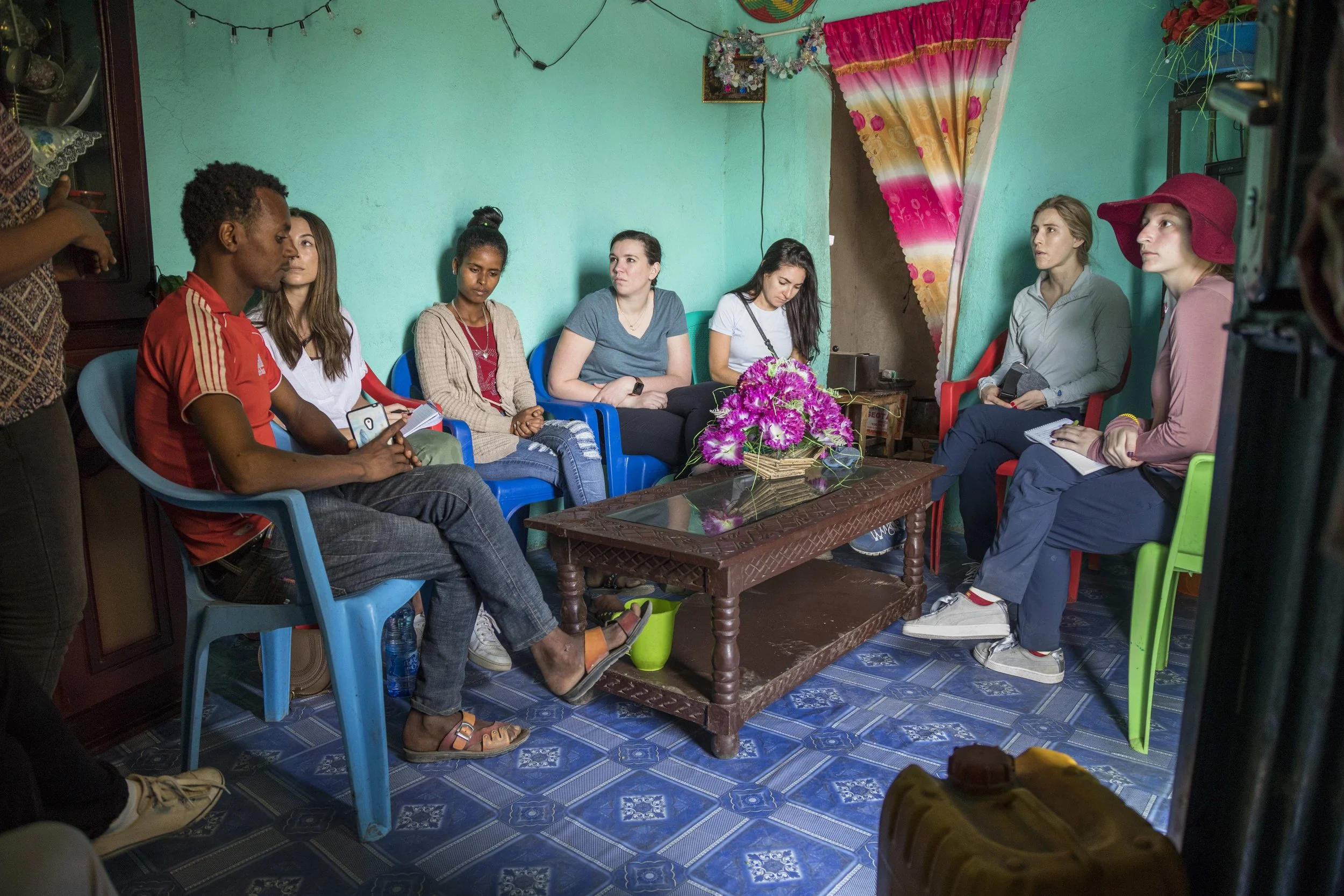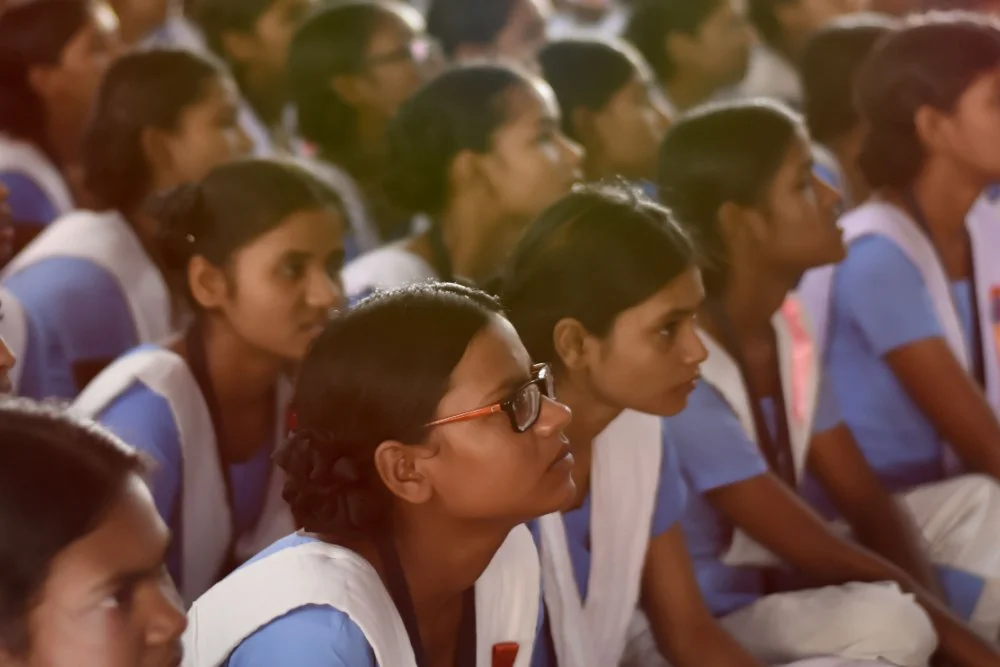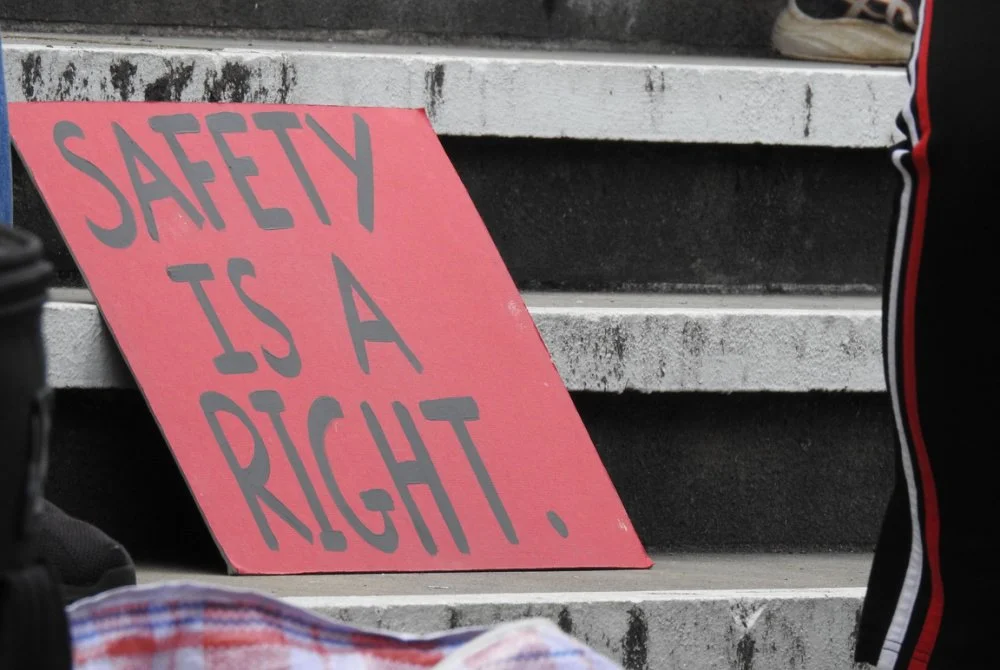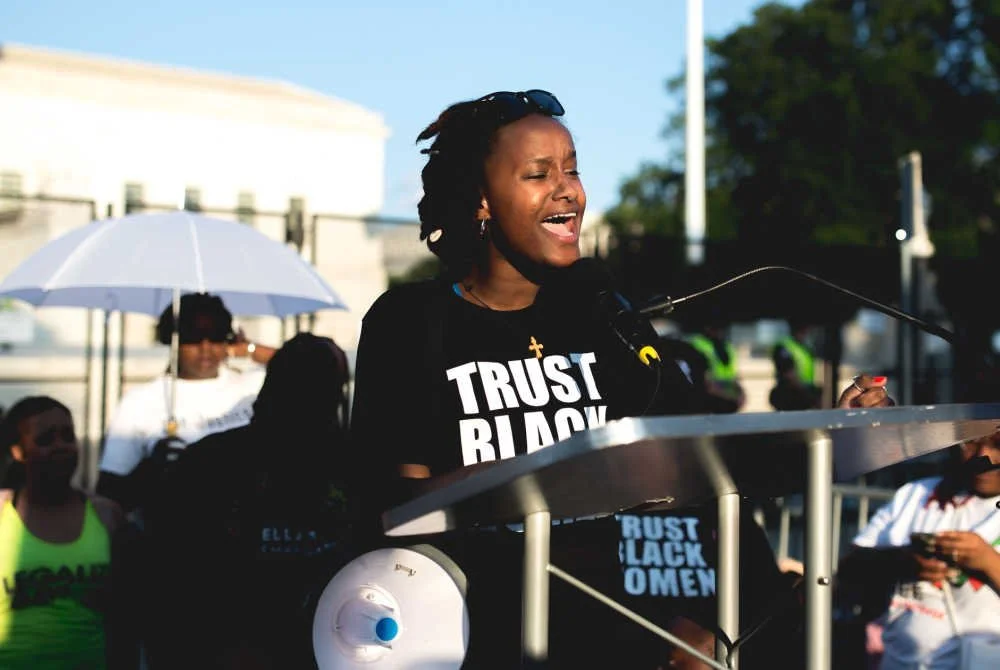Out of the Shadows: What Philanthropy is Doing to Support Sex Worker Movements Around the World
/Bangkok, Thailand. Christopher PB/shutterstock
Sex work is a long-lived, complex and controversial human practice that deserves more attention, both in philanthropy and beyond. Members of the global sex worker community, largely made up of women and/or LGBTQ individuals, face numerous challenges and dangers, and like many marginalized populations, they need more support.
For people not personally connected to sex work, a series from HBO or Netflix may bring this world into view, or a series of high-profile arrests might increase awareness of sex trafficking, as we recently saw with the multimillion-dollar, international trafficking ring in Florida. But while the media intermittently spotlights sex work or sex trafficking, these topics are largely swept under the rug. This cultural denial is tied to the societal exclusion and lack of support that sex workers and trafficking victims experience around the world. Many sex worker-led advocacy groups and their funders say non-judgmental acceptance, decriminalization and support for sex workers’ rights will bring them safer conditions and empowerment, while making it easier to identify and aid trafficking victims.
Artist, former sex worker and Bay Area Sex Worker Advocacy Network (BAYSWAN) Director Carol Leigh tells us, “The philanthropic community should reach out to sex workers, who are brave people and strongly need respect and assistance.”
Leigh is credited with coining the phrase “sex worker” in the 1970s—the term now preferred by the United Nations Development Program (UNDP), now widely used. A newly formed global Sex Worker Donor Collaborative defines sex work as “the provision of sexual services between consenting adults for money or goods.” The UNDP stresses that sex work is different from sex trafficking, the latter of which involves “lack of consent due to coercion or deception, or involvement of minors.”
There are many ways to support people in the sex industry. In this article, we will focus on funding for current sex workers and sex-worker-led rights organizations, along with related issues like health, poverty, racial and gender justice, labor and human rights, legal empowerment, and movement building for sex workers. Other significant related philanthropic efforts, such as those that deal with trafficking or that aim to steer people away from sex work, will only be briefly covered.
Within contemporary sex-worker communities, peer-led advocacy groups and their backers are growing and becoming more organized and vocal -- there is more going on in this philanthropic space than one might think.
Because sex work is often outlawed to varying degrees and assigned negative cultural meanings, the exact number of sex workers worldwide is hard to determine. In the U.S., where sex work is illegal outside of several counties in Nevada, there are an estimated 1 million sex workers, with global numbers thought to be in the range of 40 million. The Global Network of Sex Work Projects (NSWP) has 260 member organizations, with a focus on national and regional networks, and says there are many more local groups.
Nadia van der Linde, coordinator of the Red Umbrella Fund, “the first global fund guided by and for sex workers,” tells us she has seen “a huge amount of organizations [come] up in the past 10 years or less… We see groups growing in scope and reach and strengthened in capacity each year. Importantly, we also see increased connections between sex worker groups.”
Director of the Sexual Reproductive Rights and Health program at the Open Society Foundations (OSF) Sebastian Köhn also says he has seen “a number of organizations grow their memberships, and some become more stable organizationally, like in adopting a stronger governance structure.”
How Much Funding Reaches Sex Workers?
To orient the sex worker movement in time, it’s helpful to know that sex worker organizing picked up steam in the 1970s and 1980s. In 1985, the first international sex worker gathering was held in Amsterdam, bringing together leadership from the movement who wrote a “World Charter for Prostitutes’ Rights.” This event was followed by a series of other regional and global convenings as groups grew and became more stable, while also gaining more attention from philanthropy. Much of the early funding was oriented around health and HIV/AIDS and, over time, has shifted somewhat to focus more broadly on sex worker rights.
To get an idea of the current landscape in this branch of philanthropy, we turn to a 2014 report called “Funding for Sex Worker Rights,” released by Mama Cash, the Red Umbrella Fund and OSF, which have long been strong supporters of sex worker funding. It followed up on OSF’s 2006 report on the same topic.
A central finding is that in 2013, 56 foundations and other nongovernmental grantmakers invested in programs relating to sex worker rights. These funders invested a total of about $9.1 million through 229 grants, with the largest five grantmakers contributing 56 percent of the total, or about $5.1 million. This is a big jump from 2005, when the five most active foundations in this area gave less than $1 million combined. The top three grantmakers in both 2005 and 2013 were the Open Society Foundations, Ford Foundation, and American Jewish World Service (AJWS). In 2013, the other two in the top five were the Red Umbrella Fund and its host, Mama Cash.
Most of the other grantmakers made one or two small grants, and most funders for this cause were from the Global North. A separate publication from the Human Rights Funders Network found that between 2011 and 2015, funding for sex workers rose 5 percent, but they still received less than 1 percent of the $9.4 billion in foundation human rights funding, and about the same share of bilateral and multilateral funding.
About half of the money in 2013 went to groups led by sex workers, and about 75 percent of the organizations funded had budgets under $113,000. In order of highest support, funders largely backed advocacy and policy (55 percent), health (35 percent) and legal services (10 percent).
Van der Linde confirms that historically, HIV/AIDS and health-related funding have been a primary source of support for sex workers. This is one of the predominant ways that government funding, which is often inhibited by criminalization, also reaches these communities. At Inside Philanthropy, we’ve looked into the decline of global HIV/AIDS funding. Van der Linde also pointed out that this stream of funding is often health and project-based—while this is important, such funding does not support the broader, ongoing needs of sex worker groups. But, she says, “Some of this funding has improved, [supporting] more rights-based and movement-building work.”
A representative of the NSWP also says that while HIV/AIDS funding is crucial, given the high prevalence of the disease within this population, philanthropies “should also prioritize funding... that enables them to tackle the full spectrum of challenges and human rights violations faced by sex workers, caused by widespread criminalization, stigma, discrimination and violence.” These broader funding efforts can also have a positive effect on efforts to address HIV/AIDS and may even be essential to their success.
"What we're finding is that HIV services cannot function without access to justice, attention to policy reform and reform of law enforcement," Daniel Wolfe, director of the International Harm Reduction Development program, previously told IP.
Most of the money in 2013 went to organizations in Latin America and Africa. Though Asia and the Pacific hold much of the world’s population, they received 10 percent of the total nongovernmental funding for sex worker rights. Similarly, groups in the U.S. received about 10 percent.
“The United States is notable for a relative lack of funding for domestic sex worker-led organizations,” the report states. Similarly, Leigh of BAYSWAN tells us, “We are caught between concerns because the U.S. population, in general, is seen as comparatively well off… Sex workers in the U.S. slip through the cracks.”
The 2014 report found women’s and LGBTQ funds to be “promising” funding allies for sex worker movements, mentioning the Astraea Lesbian Foundation for Justice, Central American Women’s Fund, Global Fund for Women and Mama Cash. Van der Linde says support for the intersectional causes of LGBTQ and women’s and girls’ rights can benefit sex workers because of “strategic links between movements and advocacy opportunities.”
While Ford was one of the top supporters of these causes in 2005 and 2013, Josh Cinelli, Ford’s chief of media relations and manager of strategic communications, tells us, “This is not currently a direct area of focus for the foundation.” Once a powerful backer of the American LGBTQ funding movement, Ford does still support LGBTQ groups abroad and backs sexual and reproductive justice and HIV/AIDS issues in the U.S., so some of its funding may still reach sex workers indirectly through these channels.
The Funds and Giving Circles Led by Sex Workers
The Red Umbrella Fund has served as a primary movement-building funder for people engaged in sex work since it formed in 2012. Its history dates back to a series of international research publications and meetings on sex worker funding, including a key gathering of a donor collaborative in 2009 in the Netherlands, hosted by Mama Cash and OSF, in collaboration with the Aidsfonds, AJWS, Global Fund for Women, Hivos and Oak Foundation. As we’ll report shortly, a new incarnation of this global funding collaborative was recently formed.
The Red Umbrella Fund’s founding supporters were AJWS, Comic Relief, the MAC AIDS Fund, Mama Cash, OSF and the Levi Strauss Foundation, and it launched in collaboration with NSWP. The fund’s host, Mama Cash, is the oldest international women's fund. Emmy Dexel, senior officer for communications for Mama Cash, tells us it has campaigned for the rights of women, girls and transgender people, including those working in the sex industry, since it formed in 1983. “Sex work is work, and we support people in that sector,” she adds. The Robert Carr Civil Society networks fund and FRIDA the Young Feminist Fund, both of which support sex workers, were also set up around the same time as the Red Umbrella Fund.
“We fund groups where they are at, whether they are registered or not, whether they have ever managed funds before or not,” van der Linde tells us. Sex workers make up the majority of stakeholders in Red Umbrella Fund decision-making processes, including grant allocations. This fund supports some groups that are decades old and many that are new, with grants typically in the tens of thousands. It is a member of the new international Sex Workers Donor Collaborative (SWDC).
The Red Umbrella fund is not alone in its strategy of handing over the reins to sex workers. In 2018, the Third Wave Fund (Third Wave), an activist fund led by and for women of color, intersex, queer and trans folks under 35 in the U.S., announced the first grantees of its new Sex Worker Giving Circle (SWGC). It’s the first sex worker-led fund housed at a U.S. foundation.
Maryse Mitchell-Brody, the first program officer dedicated to funding for sex workers in the U.S., tells us, “In communities of color and queer and trans communities, giving circles have been used for an incredibly long time, where members of the community come together to pool their resources to take care of each other,” and that the circles have also long existed “inside of philanthropy.” We’ve reported that these funding congregations can be pivotal for marginalized groups and/or those with limited resources who don’t receive much philanthropic attention. Mitchell-Brody also cites both the Trans Justice Funding Project and the giving projects of Social Justice Fund Northwest as inspirations for the SWGC.
The inaugural cohort of SWGC fellows was a cross-class, multiracial and intergenerational group of women, queer and trans folks with current or past experience in the sex trade. Fellows in the circle receive training in fundraising and grantmaking, as well as education “around the race and class dimensions of wealth in this country, the background of philanthropy in general, and specifically, social justice philanthropy and sex worker support within philanthropy,” Mitchell-Brody explains. The Third Wave team encourages participants to apply their own skill sets to this new endeavor—many had experience with crowdfunding, online communications, journalism and media that were transferable to outreach, fundraising and grantmaking.
Mitchell-Brody says the fellows effectively shared their work and goals with donors. The first to support them was the Surdna Family Foundation, a funder that often works in social justice and sustainability. While Mitchell-Brody felt some funders wanted to wait and see how the first year of this innovative project went, the SWGC did end up with “a mix of major donors, family foundations and hundreds of smaller and individual donors who support the work.” Other supporters include the Foundation for a Just Society, Solidaire Network, and members of Resource Generation, a multiracial community of young people with wealth or privilege “committed to the equitable distribution of wealth, land and power.” A meeting between fellows and Resource Generation members led to commitments for $160,000, which ended up being a major source of support for the circle, whose first round of grants totaled $200,000—not bad for an endeavor that expected to pull in about $35,000.
The first round of SWGC grants went to groups led by current and former sex workers working in diverse areas, including racial and economic justice, youth leadership, indigenous and LGBTQ topics, community safety, anti-criminalization, drug policy, and reproductive and workers’ rights. Many of the groups received their first grant or first larger grant.
We know that racial and ethnic discrimination persist around the world. We don’t fully explore how race and racism affect members of the diverse global community of sex workers in this story, but the Third Wave SWGC provides a strong contemporary example of how funders can support sex workers of color in the U.S. Several of its grants focus on people of color in sex worker communities and specifically on empowering trans women of color, the impact of the prison industrial complex on sex workers of color, and the healing and representation of people of color in social justice movements.
Going forward, the Third Wave SWGC plans to carry out another round of grants with at least $300,000 in 2019. And it will continue to offer leadership development opportunities for fellows and grantees and engage in philanthropic advocacy—it is also part of the SWDC.
Tisha Leftenant, a 2018 SWGC fellow and 2019 adviser, says that in the circle, “I was able to speak openly with others for the first time about my full self. I could talk about being an escort and being an academic and being an activist, and not have to separate those parts of myself for anyone's comfort.” They also described the experience as accessible for a disabled person living in poverty, because Third Wave paid for food and transportation for each meeting and created a safe space “where all of us spoke openly about the challenges of our bodies and minds.”
Other Loyal Sex Worker Funders, Decriminalization and Trafficking
AJWS is another member of the new SWDC and a major sex worker funder—in 11 countries, it works with 42 grassroots groups that support the human rights of these communities. Shari Turitz, vice president for programs of AJWS, tells us, “We believe that all workers should be treated fairly and that all people deserve to live with dignity and without fear of violence and abuse.” AJWS funds many groups organized by sex workers themselves. Turitz says their grantees help “sex workers to improve their working conditions.” She also says safer conditions, self-organized work structures and independence can help these groups combat trafficking.
“When other funders ask why we support this work, we explain to them that our support of sex workers is rooted in our core Jewish belief that we must uphold the essential dignity of every human being.”
OSF has been involved in sex worker funding since the 1990s, and currently backs groups in about 20 countries with a focus on sex worker-led groups. Köhn tells us the work has five strands of focus: to reform laws and reduce criminalization, address violence and police abuse, improve access to healthcare, “challenge stigma and harmful narratives,” and improve the funding environment in favor of sex worker rights.
Köhn points out that migrant rights have a strong intersection with sex worker rights. For example, OSF backs several groups in France, where most sex workers are migrants and many are undocumented. In this country, OSF has seen both “harsh migration controls” and the criminalization of sex workers’ clients. He says this type of criminalization is “passed on to the sex workers.” One grantee, Médecins du monde (French for Doctors of the World), provides health services and research—it interviewed about 580 sex workers. It found that with the criminalization of clients, “the vulnerability to violence increased, police relations either didn’t improve or deteriorated, and sex workers faced lower incomes, lower living conditions, and a reduced ability to negotiate safer sex.” OSF supports the full decriminalization of sex work.
OSF and other advocates calling for decriminalization explain that people whose sex work is decriminalized are less likely to end up trafficked or mistreated by clients, pimps or police—an all-too-common occurrence —and are more likely to come forward when they or others are abused. Crystal DeBoise, co-director of the Sex Workers Project at the Urban Justice Center, which provides legal services for sex workers in the U.S., previously told IP that overwhelming evidence shows decriminalization will help these workers access needed healthcare and legal support. A 2012 UNDP report titled “Sex Work and the Law in Asia and the Pacific,” also called for decriminalization, one reason being that it found “criminalization increases vulnerability to HIV.”
Sex work law, decriminalization and legalization are obviously a big part of this picture and of sex workers’ lives, but the history of these laws and the density of area-specific rules are beyond the scope of this article. The NSWP is a great resource on these matters—it recently published an interactive global map of these regulations.
Sex trafficking is unanimously condemned by sex worker groups and funders. The 2014 report recommends that grantmakers separate funding relating to sex trafficking and sex work, even if they fund both. Many of the nonprofits and philanthropies that back sex worker groups feel that conflating sex work with trafficking is dangerous for the people involved. The U.N. has found sex workers to be well positioned to report sex trafficking and direct victims to aid, and NWSP recommends sex workers be included in policy decisions around sex trafficking.
A few examples of the funders who have addressed sex trafficking through their grantmaking are Google, the Gates Foundation, NoVo Foundation (NoVo), OSF, Greenbaum Foundation, N2GIVES, New York Women's Foundation, San Diego Women’s Foundation, New York Foundation, and Arizona Community Foundation, among many others. As we’ve reported, donors to this cause also sometimes remain anonymous.
Differing Approaches to Funding for People in the Sex Trade
NoVo is a substantial supporter of ending violence against women and girls around the world. Along with fighting trafficking, it also provides funding to help people avoid or leave what it calls the sex trade. Its definition of the trade includes all transactional sexual activity, including paid sex, porn and stripping. NoVo views the sex trade as inherently exploitative and harmful, linked to trauma and gender-based violence. It refers to anyone with lived experience in it as a survivor. NoVo states it centers its sex trade work with “those who experience the overlapping oppressions of racism, sexism, misogyny, xenophobia, transphobia and economic discrimination” — a message of intersectionality we also hear from sex workers’ rights activists, advocates and funders.
While not a backer of sex workers’ rights movements, NoVo is a notable player in the realm where philanthropy interacts with the sex industry. Recently, it committed $10 million to its Life Story grants program in the U.S., which seeks to “open exit ramps and close on-ramps” to the broad sex trade and to sex trafficking. NoVo states social and economic systems have failed many girls and women and is focusing the funding in the realms of housing, medical needs, law enforcement, trauma and mental health, immigration, and systems impacting youth such as education and foster care.
The grants align with NoVo’s, “The Life Story,” project, an online platform that shares women’s stories about their experiences with the sex industry and with trafficking. “I filled out 40 applications for housing, and no one answered, because I have my background,” said one participant.
NoVo is right that a lot of people in the sex industry encounter diverse challenges. Along with the layered cultural marginalization and physical violence people engaging in transactional sex can face, many experience trauma before adulthood. Sexual and emotional abuse in youth have been strongly linked to engagement in sex work in multiple research findings, as this National Institute of Health study explains. Many of the women NoVo interviewed were abused or trafficked in youth, and many people enter sex work for financial reasons.
While a large portion of sex worker-organized groups fight for rights, well-being, social justice and decriminalization, it’s important to note that there are also groups of former sex workers whose stance is more akin to NoVo’s—viewing the sex trade as blatantly negative. Members of some of these groups participated in NoVo’s Life Story listening project. One example is the Organization for Prostitution Survivors (OPS) in Washington, which was launched to “address the harm of prostitution,” and help adult women “heal from gender-based violence.” Living in Freedom Together (LIFT) in Massachusetts is another similar group.
Many sex worker-led groups, service providers and funders warn against casting sex work as innately negative or harmful. OSF states that while poverty and lack of other options can lead some to sell sexual services, others choose it because of better pay, flexible working conditions, or to “explore and express their sexuality,” and that participants have a range of feelings about this kind of work.
“When critics claim that sex work itself is harmful, they ignore not only this diversity of opinion and experience, but also the autonomy and consent of adults who choose to sell sexual services.” Changing public perceptions of sex workers from “passive victims” to “active agents” was a key recommendation of a 2008 donor-activist dialogue and report that led to the creation of the Red Umbrella Fund. As we’ve reported, many activists say full decriminalization will empower and elevate sex workers, reducing the amount of trauma to which they are exposed.
At a 2018 feminist funding convening in Kenya called “Money and Movements,” coordinator of the Kenya Sex Workers Alliance Phelister Abdalla said, “I am a beautiful woman and I use my body to make a living. I make people happy and get money for that.”
“We are workers who use our brains and our skills to earn an income. We are proud to support ourselves and our extended families. We look after each other at work, and we fight for safe and fair standards in our industry and equal rights within society,” an AJWS grantee said.
Leigh of BAYSWAN tells us, “Harm reduction support, outreach and case management for sex workers in general can help us to work toward stability and be able to best choose from options,” but she does not recommend limiting funding to those who have left or are committed to leaving sex work.
Regardless of one’s position on transactional sexual activity and related funding, it’s hard to deny that sex workers’ issues intersect with many other philanthropic causes, as Sam Avrett tell us. He’s an HIV program consultant and researcher with the Fremont Center, which helps organizations respond progressively to the global HIV pandemic, and he was one of the lead researchers who created the 2014 funding report.
Avrett points out that sex workers are frequently denied human rights like freedom of expression, assembly and association; protection from violence, discrimination and unjustified arrest; and access to legal counsel and health services. He calls on “any funder concerned about the equality of women and girls, discrimination based on gender and sexuality, or issues of poverty, health or human rights” to make supporting sex workers’ rights a priority.
Areas of Need in Sex Worker Funding
The 2014 funding report is powerful because it draws input directly from groups of people engaging in transactional sex who are seeking support around the world, giving voice to those who are too often unheard. So what do sex workers want? Not surprisingly, their desires are similar to those often expressed by any nonprofit—long-term, general, core support.
“Fund us for who we are. Don’t force us to moderate our tone and divide our work into projects. We need funders who will back us,” a sex worker respondent from an organization in Western Europe said.
While health and wellness funding remain essential, organizational development, policy and advocacy, and legal services were highlighted by the sex workers as high-need areas. DeBoise of the Sex Workers Project has told us that handling workplace and housing discrimination are major areas where sex workers need legal help. She also highlighted issues of immigration as an area that can inhibit the economic mobility and empowerment of people in sex work.
While movement building and policy advocacy can and often do center on full decriminalization, funders can also support sex workers’ daily rights in community-based efforts to improve relationships with law enforcement. OSF has advocated for changes in local policing policies—in Kyrgyzstan, it helped to train police to stop harassing sex workers and drug workers seeking condoms and clean needles and helped build a team of "friendly police” who excelled at nonjudgmental harm-reduction approaches within these communities.
And Wolfe of OSF has extolled the virtues of Seattle’s Law Enforcement Assisted Diversion (LEAD), which enables police officers to send people charged with low-level sex work or drug-related offenses to community-based services instead of prosecution and jail.
Sex workers also say they want to be recognized and empowered as competent organizers and decision makers, echoing the calls for participatory grantmaking that are increasing throughout the philanthrosphere. As we know, entities like the Red Umbrella Fund and Third Wave SWGC are providing these kinds of opportunities.
Some of the people working in transactional sex who were surveyed also warned against the “raid and rescue” strategy of assistance, in which groups swoop in to “save” sex workers from brothels without first conferring with them. “Rights not rescue,” is a rallying cry in many of these communities.
Leigh of BAYSWAN points out that “older sex workers need resources,” and that sex worker activists often help “older and sick people in their communities who come to old age without Social Security funds, because our work is often not legal.”
Male sex workers also seek to be acknowledged and supported as distinct within broader sex worker communities. “Male and transgender sex workers often experience sex work, related stigma and violence in different ways than female sex workers,” the Red Umbrella Fund states in a case study of an anonymous sex worker organization serving a male minority.
And people who are trans and gender nonconforming face widespread discrimination and exclusion around the world, so they need focused support within sex work and in general. Philanthropies interested in backing or learning about trans causes can check out Grantmakers United for Trans Communities (GUTC), an affinity group and resource for trans-specific funding.
A lot of contemporary sex workers want to be allowed to advertise their services and communicate freely with each other, particularly online. Relationships between sex workers can serve as an essential source of support, networking and safety. In the modern era, many use the web to share input on “bad dates”—dangerous clients or buyers—and to check in with each other. They have also used low-cost or free sites to promote their services independently, screen clients, and choose when and where to work. With the passage of the Fight Online Sex Trafficking Act (FOSTA) and Stop Enabling Sex Traffickers Act (SESTA) in 2018, many of these sites were closed or made to take down sexual content. While stopping trafficking is clearly important, these regulations also sent a shockwave throughout the sex worker community, removing sources of control for workers and sending many back to pimps or the streets. In late 2018, OSF put out a call offering support to organizations “to advocate for sex workers’ health and human rights in connection to litigation efforts to challenge the [FOSTA and SESTA].”
“Violation of the human rights of sex workers… must not be viewed as acceptable collateral damage in the course of anti-trafficking work,” NSWP states. The UNDP warns against governments who “use the treaties and laws on trafficking to justify suppression of all voluntary adult sex work.”
New Funding Conversations and Opportunities
As we mentioned, a new Sex Worker Donor Collaborative began to take shape in 2017. It held a meeting in Bangkok at the start of 2018, which Köhn says “was sort of a first recruitment push for the collaborative.” OSF, Third Wave, Red Umbrella Fund and AJWS are all involved, with a current undisclosed 19 individual members representing 16 organizations.
According to materials shared by OSF, “The primary mission of the SWDC is to increase the amount and quality of funding and non-financial support for sex worker rights and sex worker organizing.” Köhn points out this is not a pooled fund, but an “opportunity to learn and discuss what works in this area, to connect with donors—some of us who’ve had, at this point, almost two decades of experience in this area.” He also points to the intersectionality of sex worker-related issues, saying the group is “interested in engaging with funders from all sorts of fields,” such as gender justice, health and women’s, migrant’s and workers’ rights, among other issues. The collaborative will also be releasing a publication called “Defining Sex Worker Rights Funding” in the near future.
And Mitchell-Brody tells us Third Wave is also part of a new U.S. Sex Worker Funders Working Group that also includes Neo, an intermediary foundation for the Oak Foundation, and the Astraea Lesbian Foundation for Justice. This group is still in the early stages and is “a more casual conversation than the [SWDC].” Mitchell-Brody says that they are a good contact person for funders interested in the U.S. working group, and that OSF and AJWS are points of contact for the SWDC.
“It is very helpful and encouraging when a donor organization speaks openly about their support of sex workers—this approach can take some stigma off sex work and encourage other potential donors to look into supporting sex work-related projects,” a representative from an Eastern European sex worker organization told the Red Umbrella Fund.
Köhn tells us that while some global sex worker funders’ contributions have risen or fallen, his hunch is that, “in terms of the dollar amounts available, it’s roughly the same today as it was [in 2013].”
Looking forward, Van der Linde of the Red Umbrella Fund says, “It is so important to do further explorative landscaping research, following up on our 2014 mapping exercise and surveys, so that we can get a better sense of the actual picture” of sex worker funding areas and needs. If the new SWDC or another entity tackles this mission, updated research could potentially fuel new waves of political advocacy, social recognition, and funding.
The new donor collaboratives in formation are certainly hopeful developments for this area of philanthropy, and perhaps the success of the new Third Wave SWGC and its partnership with members of Resource Generation are signs that more up-and-coming givers will embrace and back sex worker communities. We’ll end with a few more messages from current and former sex workers:
Abdalla of the Kenya Sex Workers Alliance said, “Sex workers are feminists, too. We belong in the feminist movement. My body, my business!”
“To know that I am helping to make a real difference in the lives of sex workers all over the U.S., as a former sex worker, is so affirming to my humanity, and for that, I am grateful," says Leftenant of the Third Wave SWGC.
An anonymous sex worker from Southeast Asia said, “Funders should have courage. Be willing to listen to us and support us in our struggle to have our rights respected and our voices heard.”




